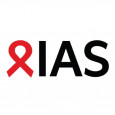On this World AIDS Day, the IAS calls on the HIV response to put communities first. This episode of HIV unmuted, the award-winning IAS podcast, puts the spotlight on a specific community that is often overlooked: people growing older with HIV.
Remarkable strides in medicine and science have transformed the HIV response since the impact of AIDS-related illnesses in the 1980s, which claimed many lives prematurely.
Thanks to access to life-saving treatments and proper care, it is now possible for people living with HIV to live into old age – something that was inconceivable 40 years ago.
Globally, UNAIDS estimates a significant increase in people aged 50 years or older living with HIV – from 5.6 million in 2015 to 9.4 million in 2022. This generation now faces unprecedented and unique HIV-related health issues.
In this special episode, we hear from people who have been living with HIV for more than 20 years, unravel the scientific dimensions of ageing, and discover how we can put communities first in the HIV response to address the challenges of growing older with HIV.
On this World AIDS Day, we will never forget those we have lost in the HIV response, and we will never truly address the issues of growing older with HIV until we put communities first.
For more information, go to our World AIDS Day page.
Meet our guests:
-
Jules Levin, Founder of the National AIDS Treatment Advocacy Project, offers a first-hand perspective on navigating four decades living with HIV.
-
Reena Rajasuriar, Associate Professor at the University of Malaya and principal investigator for the Centre of Excellence for Research in AIDS at the University of Malaya, unpacks the scientific complexities of the ageing process for people living with HIV.
-
Lillian Mworeko, Executive Director at the International Community of Women living with HIV Eastern Africa and advocate from Uganda who has been living with HIV for 25 years, shares insights on prioritizing communities.








Comments
Comments